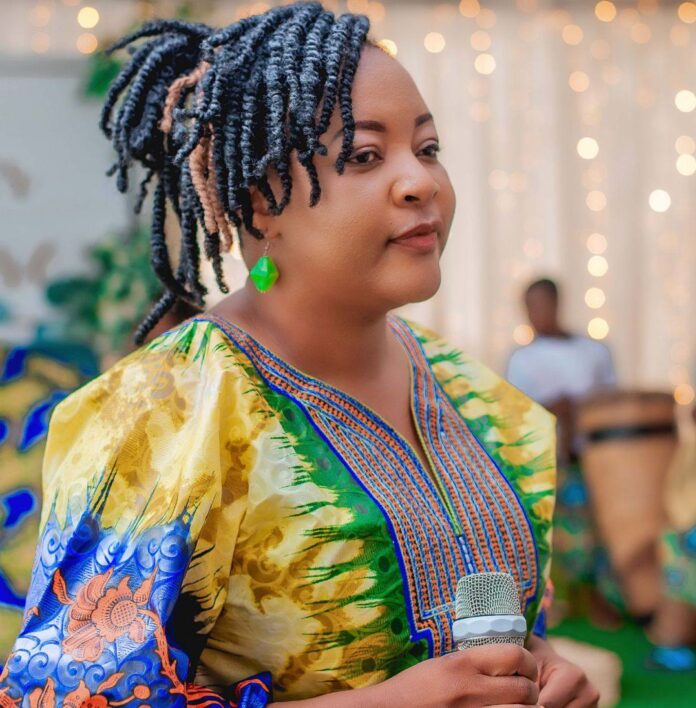Legendary Zambian artist opens up about gender-based challenges that nearly derailed her 21-year musical journey
In a candid revelation that has resonated throughout the Zambian music industry, legendary musician Angela Nyirenda has shared the profound struggles she faced at the beginning of her illustrious 21-year career. Speaking at a media briefing for the Insaka Cultural Music Festival, Angela courageously disclosed how difficult it was for her to even call herself a musician, often feeling compelled to apologise or explain why she was pursuing music as a career.
The Weight of Gender Expectations
Angela Nyirenda has shared the struggles she faced at the start of her 21-year career, saying it was so difficult to call herself a musician that she often had to apologise or explain why she was pursuing music.
This powerful statement reveals the deep-seated gender biases that have historically plagued the music industry, particularly in traditional African societies where women’s career choices were often scrutinized and questioned.
Cultural Barriers and Social Pressure
Angela’s experience highlights the numerous obstacles that female artists have historically faced:
Societal Expectations:
- Pressure to pursue “traditional” female careers
- Questions about the appropriateness of music as a profession for women
- Family and community skepticism about musical pursuits
- Gender stereotypes limiting women’s artistic expression
Professional Challenges:
- Limited opportunities for female artists in the industry
- Male-dominated music scene with few female role models
- Difficulty accessing recording studios and production facilities
- Challenges in getting radio airplay and media coverage
Angela Nyirenda’s Journey to Success
From Apologies to Acclaim
Despite these early struggles, Angela Nyirenda has built an extraordinary career spanning over two decades. Her journey from having to apologise for her musical ambitions to becoming a legendary figure represents a triumph over systemic barriers.
Career Milestones:
- 21 Years in Music: Consistent presence in Zambian music industry
- Legendary Status: Recognition as one of Zambia’s premier female artists
- Cultural Impact: Influencing generations of aspiring female musicians
- Industry Respect: Earning recognition from peers and media
Breaking Down Barriers
Angela’s persistence and talent have helped pave the way for future generations of female artists by:
Challenging Stereotypes:
- Proving women can succeed in the music industry
- Demonstrating that music is a legitimate career choice for women
- Creating representation for aspiring female musicians
- Building credibility for women in creative professions
Industry Transformation:
- Contributing to a more inclusive Zambian music scene
- Inspiring record labels to invest in female talent
- Encouraging media support for women artists
- Creating opportunities for collaborative female empowerment
The Insaka Cultural Music Festival Platform
Speaking Truth to Power
Speaking at a media briefing for the Insaka Cultural Music Festival, Angela chose this significant platform to share her story, highlighting the importance of cultural events in addressing industry issues.
Festival Significance:
- Cultural Celebration: Platform for showcasing Zambian musical heritage
- Industry Dialogue: Opportunity for discussing music industry challenges
- Artist Empowerment: Space for sharing experiences and insights
- Community Engagement: Connecting artists with fans and stakeholders
Impact on Current Female Artists
Changing the Narrative
Angela’s revelation has profound implications for current and aspiring female musicians:
Empowerment Through Truth-Telling:
- Validating the experiences of other female artists
- Encouraging open discussion about gender barriers
- Inspiring resilience in the face of discrimination
- Building solidarity among women in music
Industry Awareness:
- Highlighting ongoing challenges for female musicians
- Encouraging industry stakeholders to examine their practices
- Promoting more inclusive policies and opportunities
- Creating awareness about unconscious bias in music
The Broader Context of Women in Zambian Music
Historical Perspective
Angela’s struggles are not unique but reflect broader patterns in the Zambian music industry:
Traditional Challenges:
- Limited female representation in major music genres
- Fewer female headliners at major concerts and festivals
- Underrepresentation in music production and management
- Gender pay gaps and unequal promotional opportunities
Progressive Changes:
- Increasing number of successful female artists
- Growing recognition of women’s contributions to music
- More female-focused music events and initiatives
- Enhanced media coverage of female artists
Lessons from Angela’s Experience
For Aspiring Female Musicians
Angela’s journey offers valuable lessons for the next generation:
Persistence Pays Off:
- Don’t let initial skepticism deter your dreams
- Build your craft consistently despite external pressure
- Seek supportive networks and mentors
- Use challenges as motivation for excellence
Professional Development:
- Invest in your musical education and skills
- Build strong professional relationships
- Develop business acumen alongside artistic talent
- Create multiple revenue streams within the industry
For Industry Stakeholders
Creating Inclusive Environments:
- Examine hiring and promotional practices for gender bias
- Provide equal opportunities for male and female artists
- Support female-led initiatives and events
- Promote diverse representation in leadership roles
Supporting Female Talent:
- Invest in female artist development programs
- Ensure equitable access to resources and opportunities
- Create mentorship programs pairing established and emerging female artists
- Advocate for fair media coverage and promotional support
The Evolution of Female Representation
From Apology to Advocacy
Angela’s transformation from someone who had to apologise for her musical career to a legendary advocate represents the broader evolution of female representation in Zambian music.
Current Female Music Landscape:
- More female artists achieving commercial success
- Increased female participation in music festivals and events
- Growing female leadership in music management and production
- Enhanced collaboration between female and male artists
Cultural and Social Significance
Breaking Generational Patterns
Angela’s courage in sharing her story contributes to breaking patterns that have limited female participation in music:
Cultural Shifts:
- Changing perceptions about women’s career choices
- Increasing family support for daughters pursuing music
- Growing community celebration of female artistic achievement
- Enhanced role models for young women
Social Progress:
- Greater gender equality in creative industries
- Improved educational opportunities for female artists
- Enhanced legal protections for women in entertainment
- Increased awareness of gender-based discrimination
Future Implications
Building on Angela’s Legacy
Angela’s revelation creates opportunities for continued progress:
Industry Development:
- Development of female artist support programs
- Creation of gender-inclusive industry policies
- Establishment of women’s music advocacy organizations
- Enhanced educational opportunities for female musicians
Cultural Transformation:
- Continued challenging of gender stereotypes in music
- Promotion of diverse female voices and perspectives
- Creation of platforms specifically supporting female artists
- Building intergenerational mentorship networks
Conclusion
Angela Nyirenda’s courageous admission about having to apologise for being a musician reveals the profound challenges that female artists have faced in the Zambian music industry. Her 21-year career stands as a testament to the power of persistence, talent, and determination in overcoming systemic barriers.
The fact that a woman of Angela’s stature had to justify her musical ambitions highlights the work that remains to be done in creating truly equitable opportunities for all artists, regardless of gender. However, her success and current legendary status demonstrate that these barriers, while significant, are not insurmountable.
As Angela continues to use platforms like the Insaka Cultural Music Festival to share her experiences, she contributes to a broader conversation about gender equality in the creative industries. Her story serves as both an inspiration to aspiring female musicians and a call to action for industry stakeholders to examine and address the structural barriers that continue to limit female participation in music.
The transformation from apologising for being a musician to being celebrated as a legend represents not just Angela’s personal triumph, but the broader progress of women’s rights and representation in Zambian society. Her legacy will undoubtedly continue to inspire future generations of female artists who will, hopefully, never have to apologise for pursuing their musical dreams.



